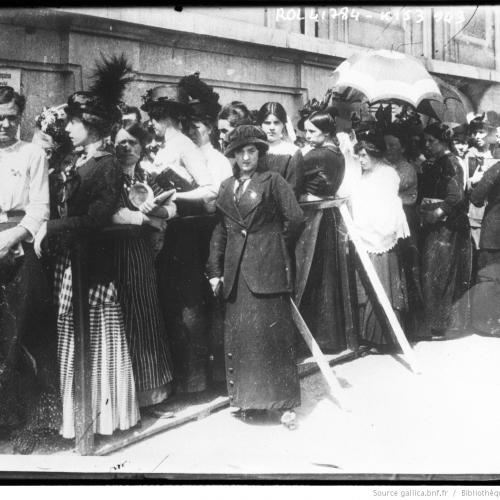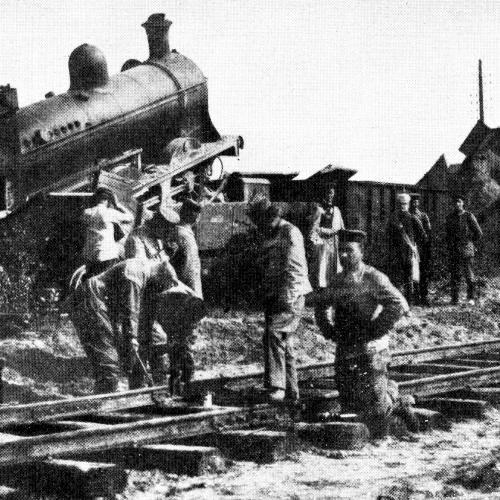Underground press and writings
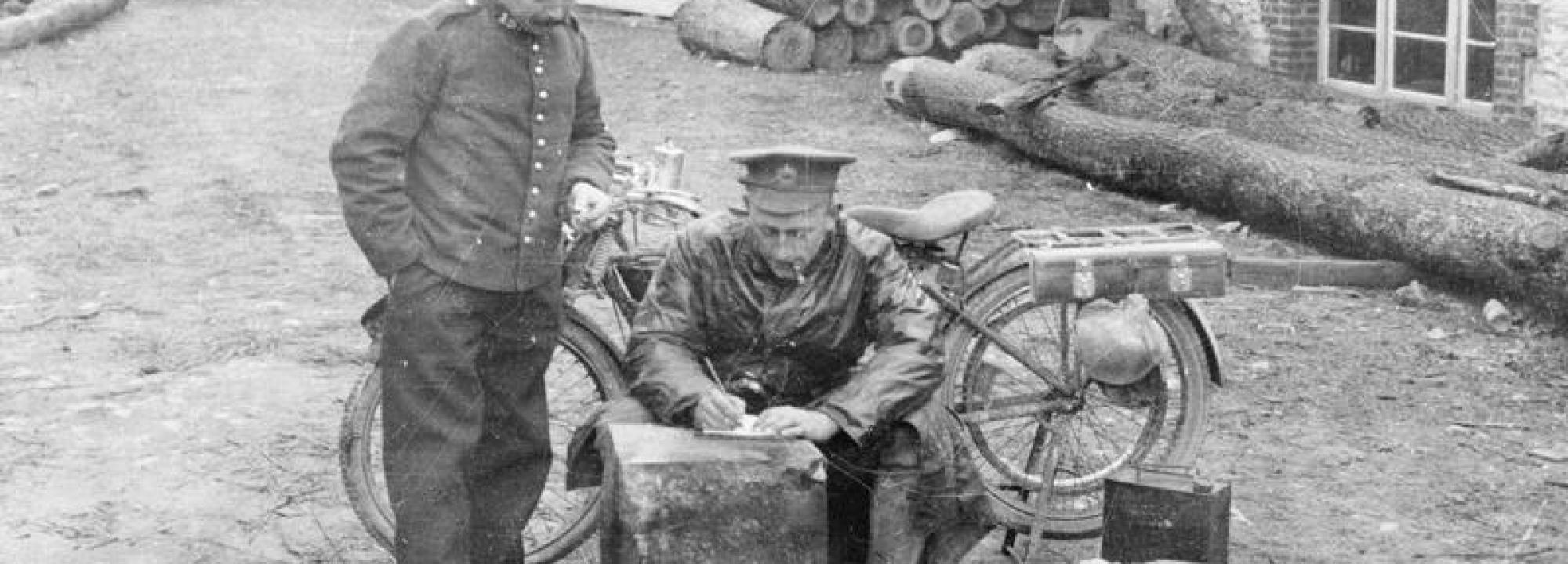
They unexpectedly read out the names of 30 or so men who had to take a bath the next day without any mention of disinfecting. But each one had seen the steam machine arrive (…). They [the men] stayed together in groups for two or three hours, in their birthday suits (…).
Those who thought about bringing along some clogs could at least cover their feet and those who had managed to hide a hand towel could put it around their waists. (…) A lot of men who arrived with a good pair of trousers left with one that was used and mended.
DEPORTED FOR HIS WRITINGS. Born in Maldegem on 2 November 1863, Victor DL was married to Octavie D. A journalist, writer and politician, he was arrested by the German authorities on December 1914 for his contributions to the Getrouwe Maldegem magazine. Victor was sent to the Holzminden camp, returning to Belgium on 2 December 1918, after being extradited to Switzerland 2 years earlier.é vers la Suisse deux ans plus tôt.
UNDERGROUNG PRESS. Born in Brussels on 9 May 1878, Théodore J. married his wife Angèle V in 1898. They lived in Saint-Gilles and had 4 children. Théodore was a waiter working for Hulstkamp in the Galerie de la Reine. Théodore was interned by the Germans in 1916 as a political prisoner. He died at 42 years of age, shortly after the war, leaving his widow and 4 children without any means of subsistence.
In the early days of the war, Théodore would distribute underground Belgian, French and British newspapers in the Galerie de la Reine in Brussels. Later on he started circulating La Libre Belgique. He organised a frontline courier service between Belgium, France and Great Britain.
As soon as the Germans arrived in Brussels my husband set about distributing prohibited Belgian, French and British newspapers out of sheer patriotism.
On 19 June 1916, Théodore was arrested in front of all the customers while working in a café. He stayed in Saint-Gilles prison from 16 June to 17 July 1916. When he was released, he was severely weakened because of his confinement, and died from the medical consequences of his detention.
A SPY IN 1915. Marie A. was born on 18 December 1884 in Anderlecht. Her 3 children were born in 1917, 1919 and 1921. Her husband Pierre tragically died in France during the war. Marie was arrested in July 1915 and sent to Ghent prison for spying.
One day, (…) I was reported and nabbed as a spy. It was in the iles philippines [café in Brussels, editor’s note] in a tiny house, kept by a hunchback called “Jefque”. I had put my shawl on the bed and nimbly dropped the letters behind the bed. As I was being arrested, the Huns did not for one moment think of looking behind the bed.
The brave man “Jefque” hid the letters in his garden. I recovered them (…) when I resumed my smuggling activities. (…). Having failed to discover anything they [the jailers] sentenced me to 13 days in prison (…) plus the two days of torture they inflicted upon me.
Marie was smuggling letters for the front line via the Netherlands. She was informed against in 1915, and arrested by the Germans as a spy. During her detention, she managed to hide some letters and recover them after her imprisonment.
Marie was ill-treated by her jailers during her 15-day stay in Ghent prison.
Unable to work upon her release, she turned to the welfare office in Anderlecht, who allowed her to qualify for food rations.bénéficier de rations alimentaires.
I managed to ensure roughly 15,000 letters reached their destination (…) from the start of the war until the time of my arrest.
CAUGHT IN THE ACT. Henri V. lived in Saint-Gilles. He was born in the city on 2 September 1878. This bachelor who worked as an electrician was arrested by the Germans in 1917 for smuggling letters to the allied soldiers and selling underground newspapers.
Henri V. regularly distributed clandestine correspondence between the Dutch border, Brussels, Tournai and Lille. On 1 January 1915, he was arrested by the Germans in Lille just as he was placing a pile of letters intended for the Solvay company in a safe place.
When he was tried by the German War Council he refused to speak and would not inform against anyone. He claimed he was looking for work. He was sentenced to 6 months in prison and transferred to Lille prison. He was compelled to work during his confinement.
RESISTANCE AT ANY COST. He was released on 15 July 1915. Back in Brussels, Henri had to report at regular intervals to the German authorities. In spite of everything he continued his resistance activities and helped young people to cross the border. He was awarded the 1914-1918 civic medal.

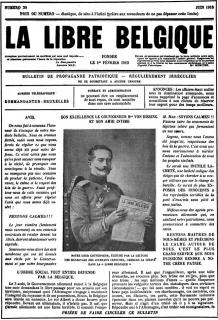
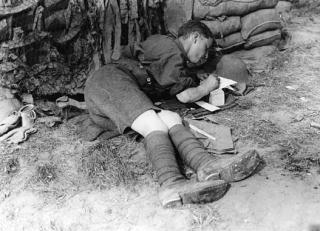
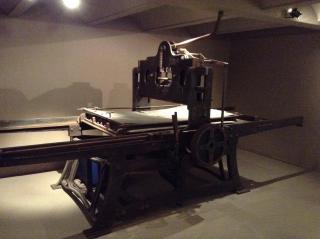
![A Villers-Cotterêts, exécution d'un espion [debout, les yeux bandés devant le peloton], 1914 - [photographie de presse, Rol, 43451 - Domaine public A Villers-Cotterêts, exécution d'un espion [debout, les yeux bandés devant le peloton], 1914](https://belgiancivilians14-18.arch.be/sites/default/files/styles/story_linked/public/uploads/fields/field_story_img_1x1/n6932868_jpeg_1_1dm_execution_espion.jpg?itok=vNRZiKoQ)
